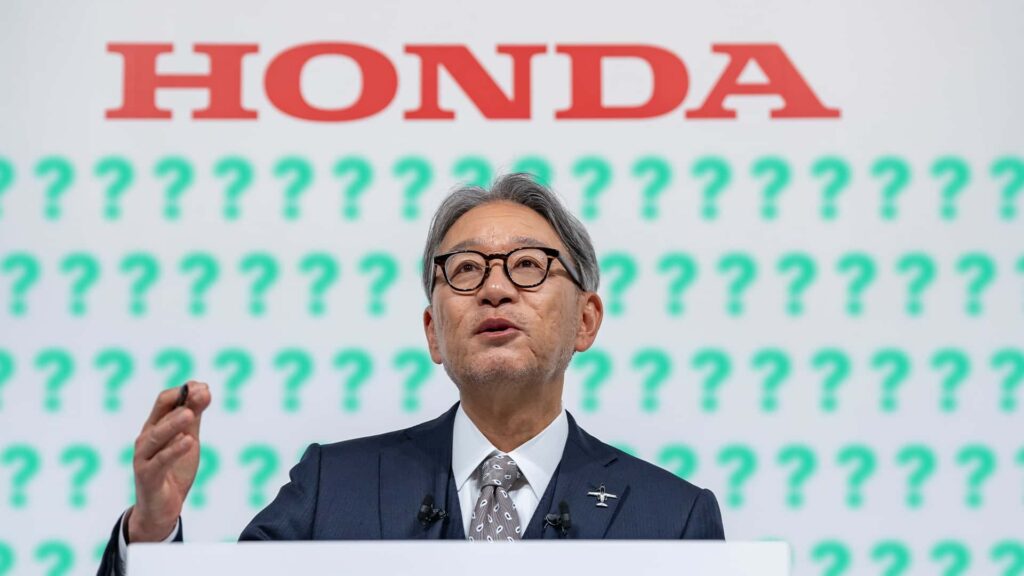Honda’s CEO recently found himself in an awkward position when questioned about the potential merger with Nissan. Toshihiro Mibe struggled to articulate why Nissan would make a suitable business partner for the mid-sized automaker, leading to laughter among journalists. The merger talks have left many puzzled, with speculation ranging from a secret alliance to a desperate attempt to stay competitive in a changing market.
On the surface, the Honda-Nissan merger appears to be a last-ditch effort, with Honda facing challenges in the EV sector following the breakdown of its partnership with General Motors. Meanwhile, Nissan is grappling with financial woes, dealer issues, and an aging EV lineup. The timing of the merger discussions, especially amidst rumors of a possible hostile takeover of Nissan by Foxconn, suggests that Honda may be stepping in as a savior for its struggling counterpart.
Despite the uncertainties surrounding the merger, there are potential benefits for both companies. Nissan’s established manufacturing network and presence in Southeast Asia could complement Honda’s strengths in hybrids and technology. Additionally, the collaboration could accelerate the development of new powertrains and EV technology, giving both brands a competitive edge in the market.
However, analysts remain skeptical about the merger, questioning the wisdom of partnering with a financially troubled company like Nissan. Julie Boote from Pelham Smithers Associates believes that Honda would have been better off collaborating with a healthier company. The pressure is on Nissan to achieve financial recovery before the merger can proceed, setting a tight timeline for the deal to materialize.
As the merger unfolds, the influence of Japan’s Ministry of Economy, Trade, and Industry is being closely watched. Speculation suggests that the government may be driving the merger to prevent a takeover of Nissan by Foxconn, a move that has raised concerns among industry experts. Former Nissan CEO Carlos Ghosn has expressed doubts about the success of the merger, highlighting the challenges both companies face in a rapidly evolving automotive landscape.
While the merger has the potential to strengthen both Honda and Nissan, it is not without risks and challenges. Experts predict that it could take several years for the benefits of the collaboration to materialize, leaving the door open for competitors to gain an advantage. Transparency and clear communication about the motives behind the merger will be crucial in building trust and confidence among stakeholders as the two automakers embark on this ambitious journey.

